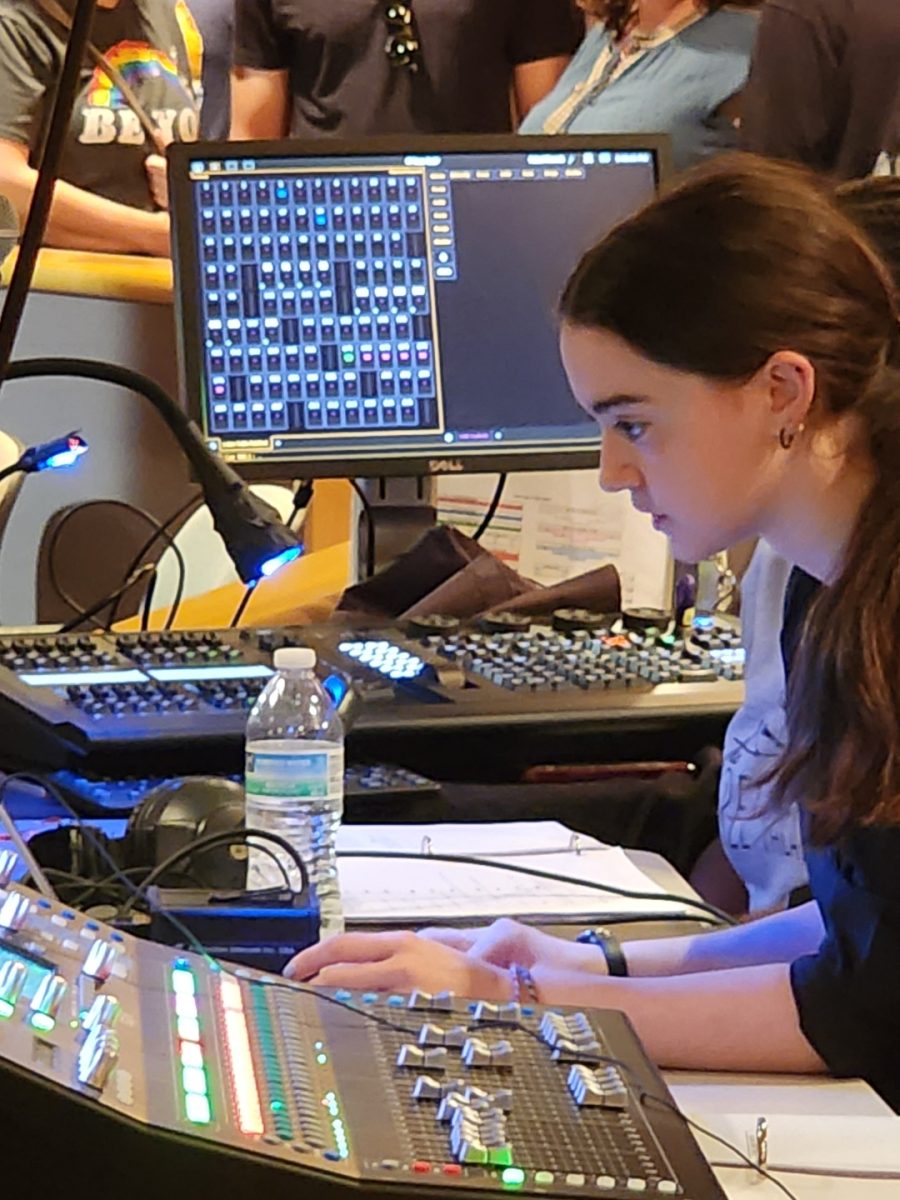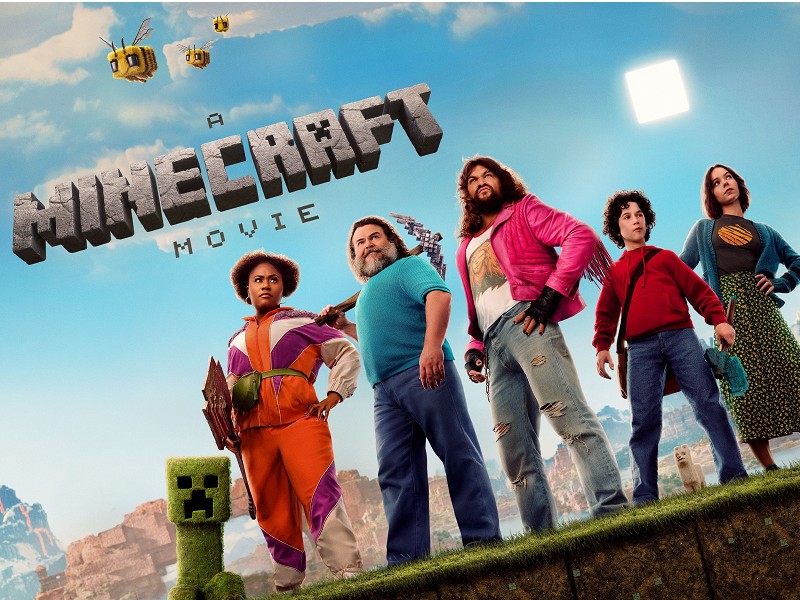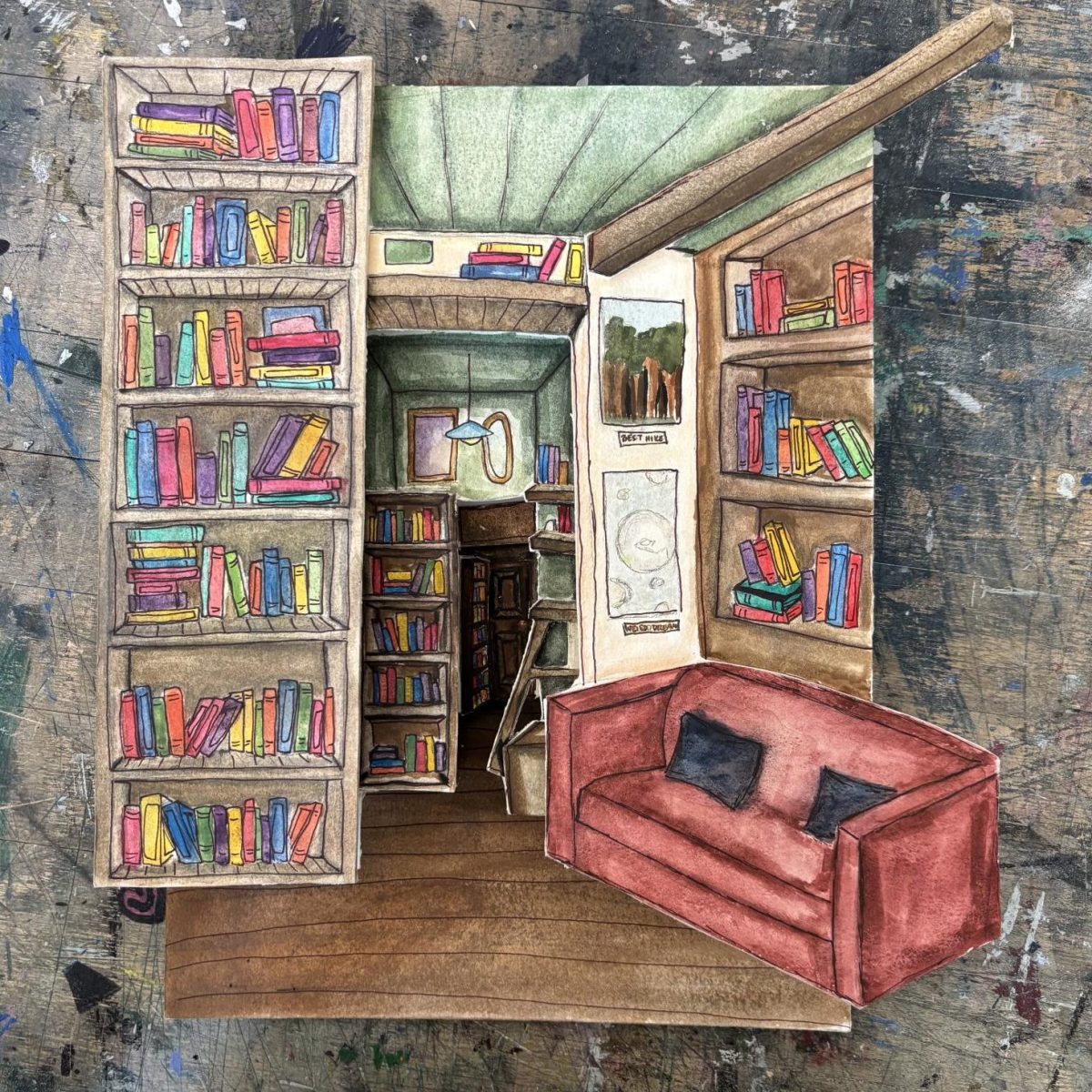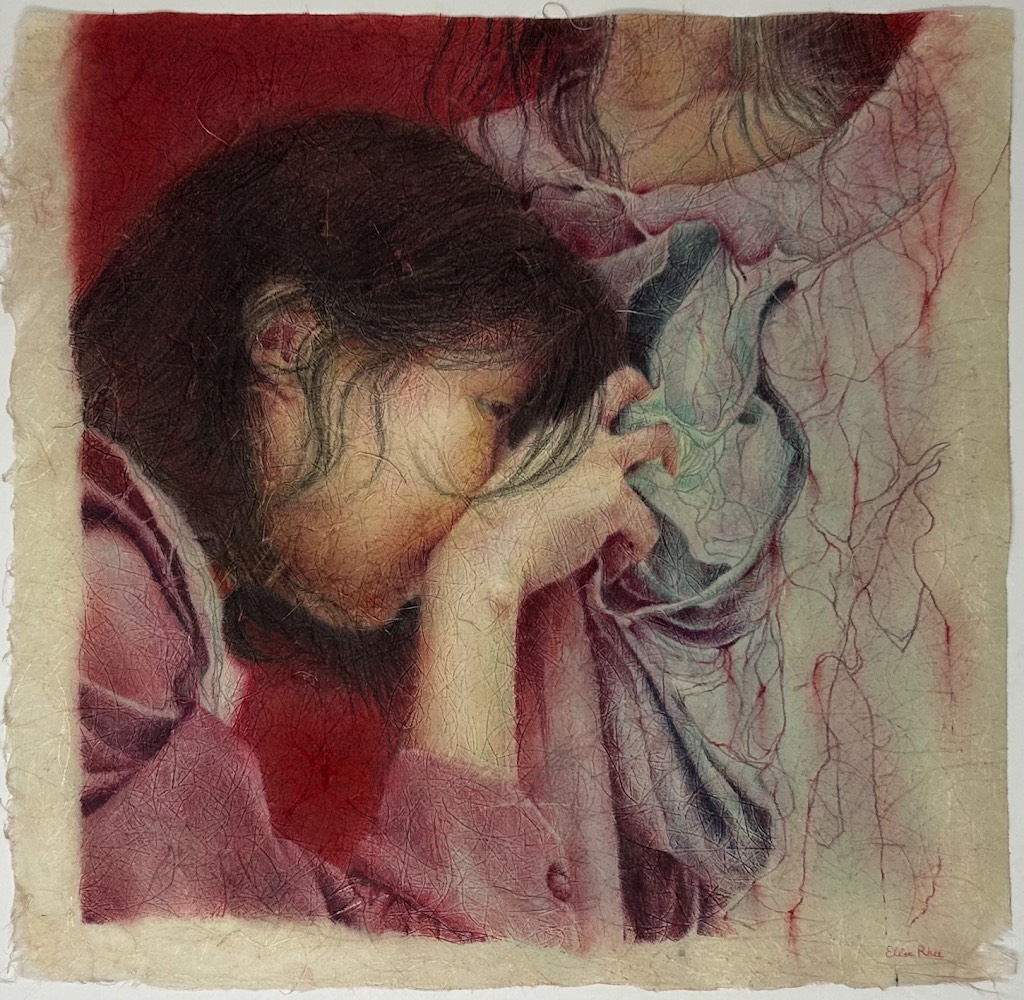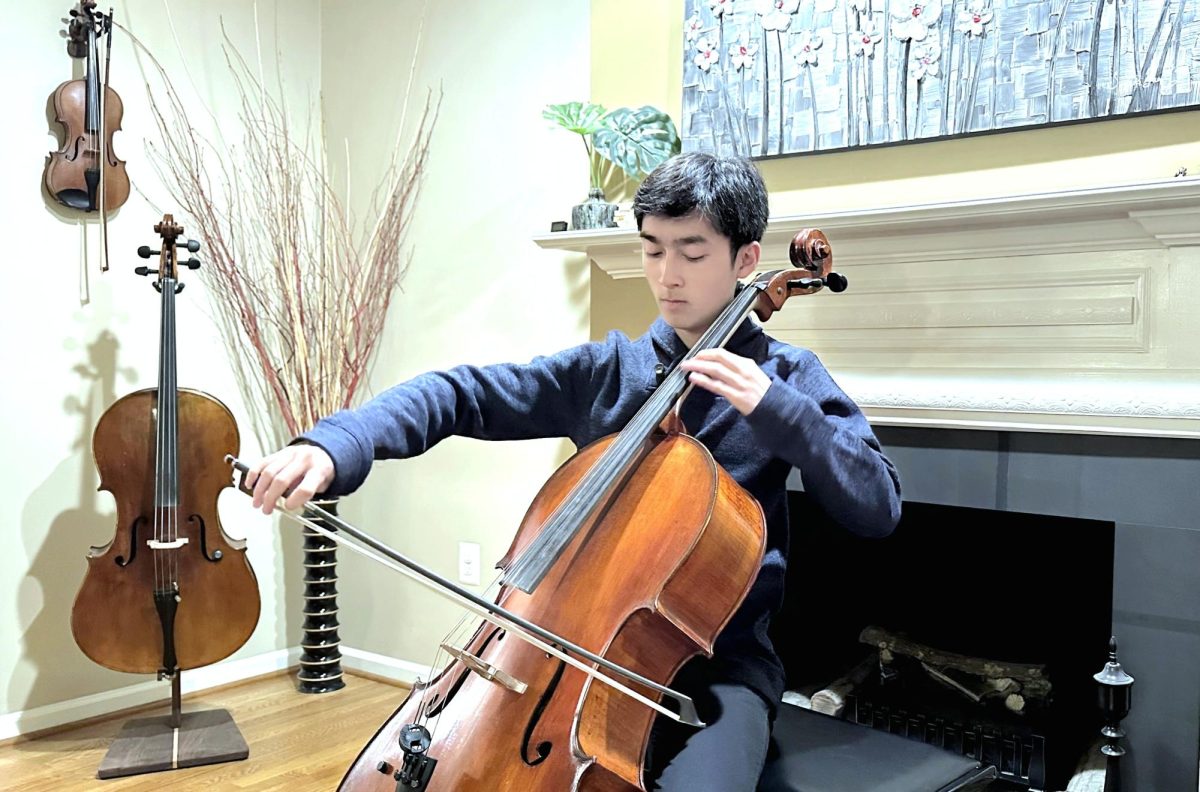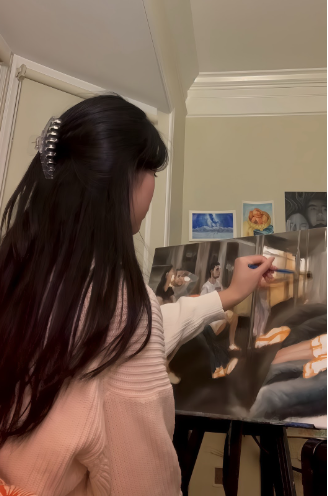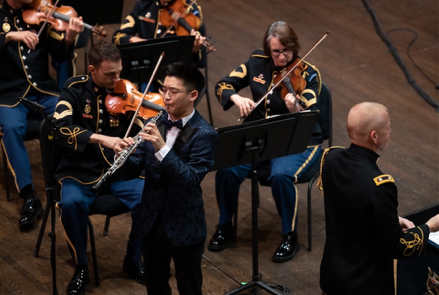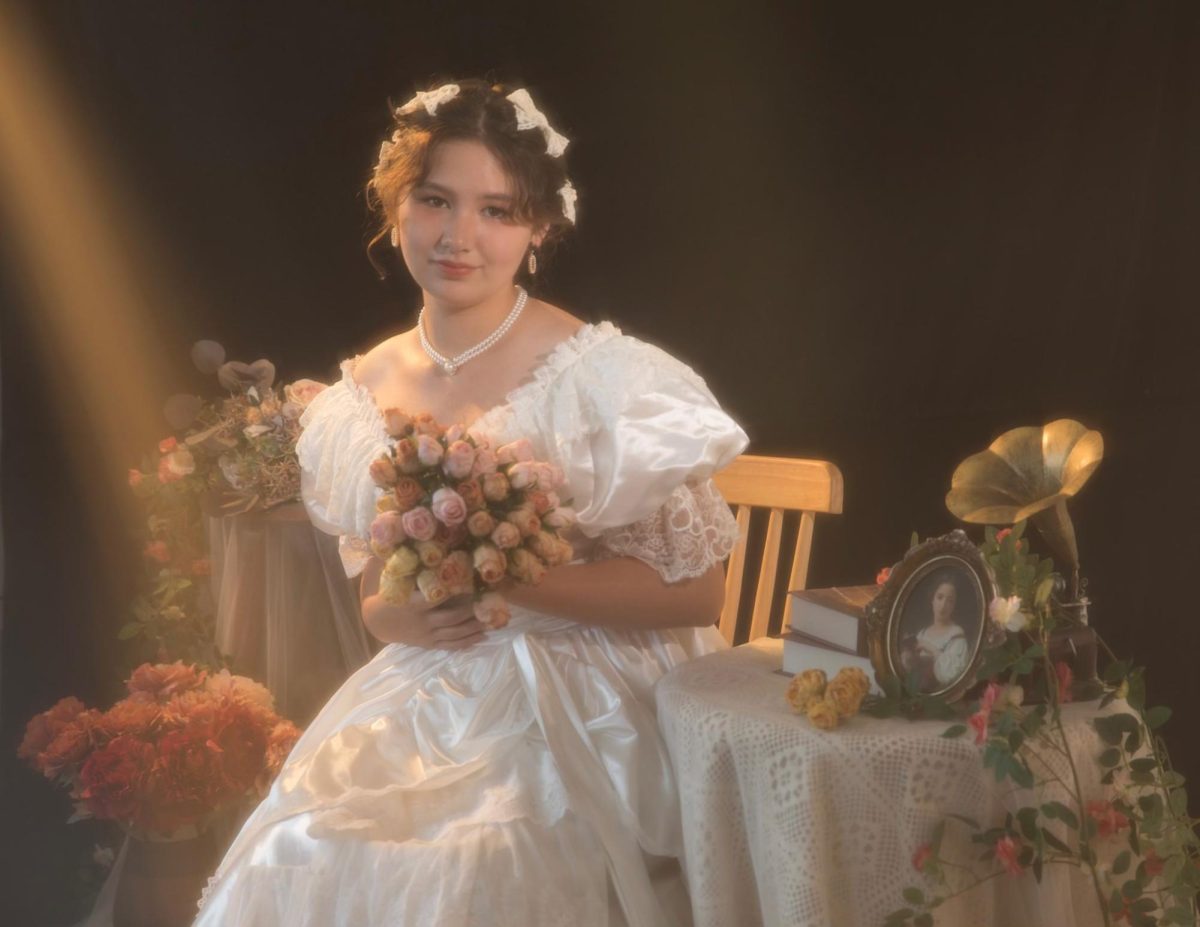It is well known that WCHS students put a lot of hard work and dedication into creating amazing musicals with bright lights, vibrant costumes and perfect sound volume and quality. The main focus when watching musicals is often on the performers but an important and often-overlooked group is the tech crew, which works in the background to ensure the performance runs as smoothly as possible. Among the hard-working tech crew is junior Brinlyn Cohen-Rider, stage manager and member of the construction crew.
Cohen-Rider has been a part of the WCHS tech crew for just over a year, having joined for the production of the 2024 spring musical, “Mamma Mia”. She moved to Maryland from Utah where she was a part of a run crew, also known as a stage crew—the group responsible for moving set pieces, for shows at her dance studio. She began working backstage in elementary school before expanding to being involved in other areas of tech crew once in high school. Working at a local teen theater allowed Cohen-Rider to explore and learn about new areas of tech including lighting and stage management.
“After moving to Maryland, I joined a local theater’s crew freshman year where I learned about lighting and eventually stage management,” WCHS junior Brinlyn Cohen-Rider said. “My sophomore year I joined the construction crew at WCHS. I most enjoy seeing the set come together from nothing. When you are part of the cast you only see the set go from mostly finished to finished but on construction, you see the stage go from completely empty to a fun, colorful and interactive set.”
Additionally, tech crew is a much broader umbrella term than some may be led to think. At WCHS, tech crew consists of lighting, sound, construction, costumes, props, stage management and run crew. Cohen-Rider’s role as stage manager at rehearsals is to take “blocking notes” which track where each actor goes, as well as noting added sounds and set/prop movements. These notes provide a crucial line of communication between the director and crew heads to ensure a seamless production.
“My favorite part about stage management is the call cues during shows,” Cohen-Rider said. “When running a show during tech week and during [actual] shows, the stage manager sits in the booth and calls cues like light/electrics, sound and set cues. The stage manager calls cues like a professional theater would when the board operator (the person who works on functions such as sound and other technical cues) is not the designer. Also, the stage manager will call any light cues that need to happen in time with other cues to ensure seamless timing. Any set cues that the wing managers need for the run crew, the stage manager runs themself.”
Operating the basic functions such as lighting, sound and stage cues are jobs that fall on the stage manager and that help to create a flawless performance both for the actors and the audience. Cohen-Rider has contributed to many tech crew roles making her knowledge of the skills needed to operate a show such as stage manager and run crew along with others. She has a crucial role in communication between the director and the crew. The run crew, also called the stage crew, moves the set pieces and keeps the stage wings organized during the show.
“When I started tech crew last year I just did construction and run crew but during the play, the old stage manager needed to train someone new because she was graduating,” Cohen-Rider said. “I was able to help her during tech week by sitting with the director which allowed the director, backstage and the booth to all talk to each other. For ‘Blast,’ the stage manager does not have as large of a role so since the old stage manager was acting in the show, I got to manage for ‘Blast.’ This was a great starting position before being the stage manager for a musical or play this year which tends to be a lot more work.”
At the end of the day, it is the stage crew that is able to pull together a performance and work with the actors and directors to produce the most enjoyable, well-rehearsed and flawless show possible.
“Stage managers definitely have a wide variety of tasks but as this is high school theater instead of a professional theater, I only do about half the jobs,” Cohen-Rider said. “Most of what I do at WCHS is making blocking notes during rehearsal and any notes that the director wants given to construction, props, lighting, etc. Then during shows most of the job is calling cues and helping run crew know what to do and being the point of communication between the director and any crew department that needs it.”


